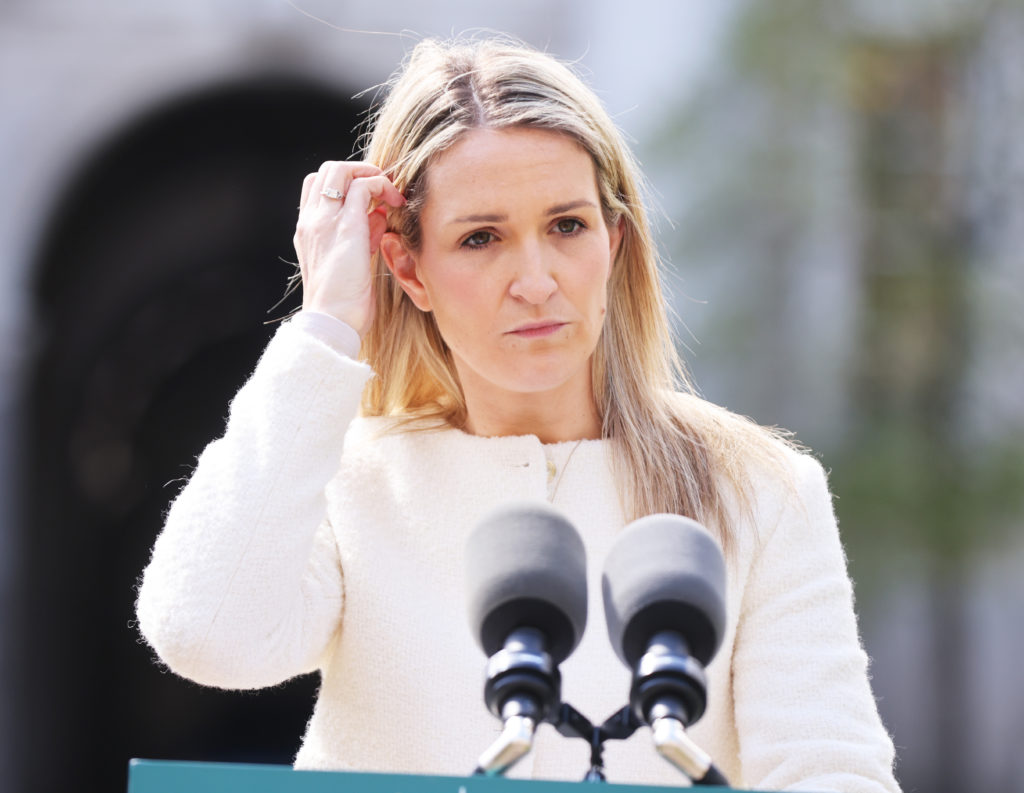IRELAND is seeking to enact legislation allowing asylum seekers who arrive at its borders to be returned to the UK.
Minister for Justice Helen McEntee has secured approval from the Cabinet for a law change to resume a previously existing agreement with Britain allowing for the return of migrants who do not meet the criteria for protection in Ireland.
That previous reciprocal arrangement was agreed in November 2020.
However, in March 2024, in a case in the High Court, it was ruled that the agreement was legally flawed as it failed to require the Justice Minister to be satisfied that a person would not be subjected to serious harm when returned to the UK.
This case was one of a number that has taken by individuals challenging their return to the UK from Ireland, since such removals have resumed after being suspended during the Covid-19 pandemic.
That High Court judgment has meant the Irish State has been unable to return asylum seekers to the UK in cases where it is deemed to be the appropriate country to process their application for protection.
This week legislative proposals agreed by Cabinet will amend the International Protection Act 2015 enabling Ireland to resume the returns to the UK.
“Ireland has and needs to have a firm rules-based system where rules are in place, where rules are enforced, and where rules are seen to be enforced,” Minister McEntee said.
“Ireland and the UK share a common interest in the effective operation of the Common Travel Area, and work closely together to prevent any abuses of the CTA,” she added.
“To combat any abuse of the CTA, it is essential that we have mechanisms in place to return people to the UK where the UK is deemed to be the appropriate country to process any application for protection.”
 Justice Minister Helen McEntee
Justice Minister Helen McEnteeRegarding the original arrangement with Britain, Minister McEntee explained that it was “reciprocal” and had been in place since Brexit took effect, to ensure that “neither of our countries are a place for people to evade or obstruct the immigration controls and processes of the other”.
“It hasn’t been operational owing to a High Court judgment which identified a legal issue which had a bearing on the operation of that arrangement,” she added.
“The legislative changes that I will bring to the Houses in the coming weeks will ensure that the arrangement can be operationalised.
“The is one of a number of measures which I am taking to make sure we have an immigration system which is firm but fair. Fair on those who need it and firm on those who don’t.”
In recent weeks Ireland has launched other initiatives to improve their processing of asylum seekers.
Their fast-track processing scheme was extended last week to include asylum applications from Nigeria – which is currently the country with the most applicants in Ireland.
Under the fast-track regime, asylum applicants receive an interview date when they arrive in Ireland and a first decision within 90 days.
“This means that someone who has a right to protection gets it much more quickly, but it also means those without a right can be returned more quickly,” the Department of Justice confirmed.
“It also means those refused have a negative immigration record which impacts their ability to travel internationally.”
Minister McEntee has also confirmed that her Department is taking over the immigration registration function from An Garda Síochána.
The move will free up to 100 Gardaí for other immigration enforcement work, including deportations.

